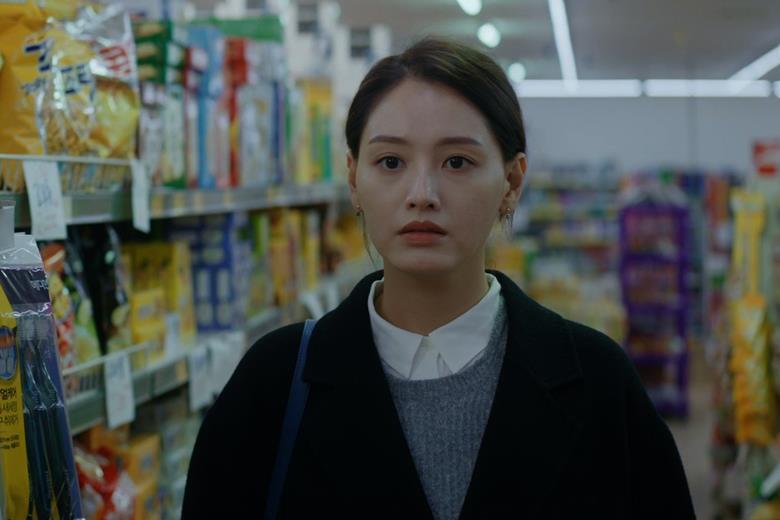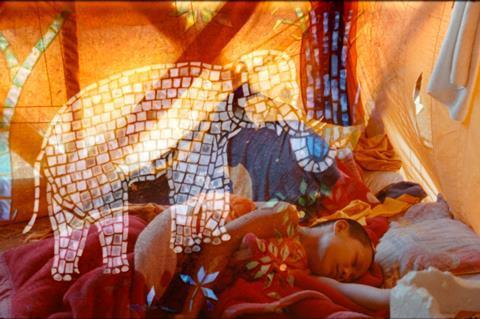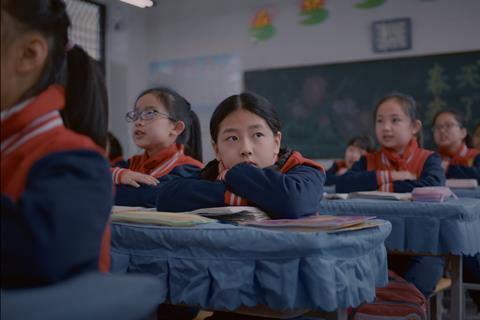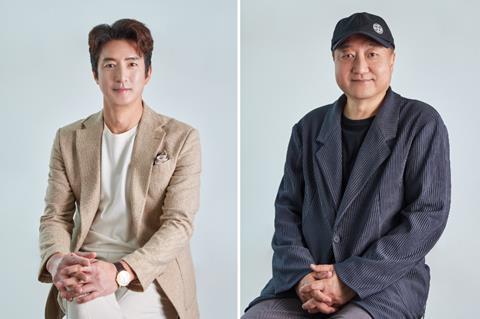Jeonju co-directors herald “new starting point”, bringing audiences back to cinemas
The festival aims to stay true to independent cinema while also connecting with more mainstream audiences.

South Korea’s Jeonju International Film Festival returns for its 24 edition with two new codirectors at the helm that reflect a desire to stay true to its alternative and independent cinema identity while connecting with more mainstream audiences.
Heading their first edition of the festival, which runs April 27 to May 6, are co-directors Jung Joonho, a veteran actor known for mainstream hits such as the gangster comedy franchise My Boss, My Hero, and Min Sungwook, who has been with Jeonju IFF since its first edition when he was secretary general, and who was most recently its deputy director.
“We’re thinking of this as a new starting point where we can once again use cinemas without social distancing or masks,” says Min. “As always, we will keep our identity alive through our programming, but our new director Jung has joined us and we believe he will help enliven the celebratory aspect of the festival.”
This bid to connect with more mainstream audiences can be important for South Korean festivals, which are usually majority-funded by local governments and can be impacted by local politics and opinion.
“Taxpayers’ precious money is used in our festival, so we are interested in finding ways to reach out to Jeonju citizens,” says Jung, explaining why the festival this year is expanding its venues and events to run throughout the city rather than stay concentrated in the Jeonju Film Street as in most previous years. Jung is also a businessman while Min is a professor at Paekche Institute of the Arts.
The festival opens on April 27 with Cannes award-winner Tori And Lokita with Belgian filmmaking duo Jean-Pierre and Luc Dardenne making their first visit to South Korea, highly anticipated by cinephiles. A total of 247 films from 42 countries will be screened across 10 days, including 66 world premieres and seven international premieres.
Street concerts and performances will be held across the city and the opening and closing ceremonies, as well as other events and screenings, will be held at diverse venues such as the Sori Arts Center of
Jeollabukdo and Jeonbuk National University Cultural Center.
The festival’s awards ceremony will be held on May 3, and it will close with the world premiere of KoreaPoland co-production Where Would You Like to Go? on May 6. Directed by Kim Hee-Jung, the film is
based on a short story by novelist Kim Aeran. Starring Park Haseon, it follows a woman whose husband drowned trying to save a student as she travels to Poland to avoid her grief.

Jeonju Cinema Project hits 10
This year marks the 10 anniversary of the Jeonju Cinema Project, the festival’s flagship industry initiative thats funds and produces selected projects to be screened in Jeonju on completion.
The initiative grew out of the original Jeonju Digital Project, which featured at the festival’s first edition in 2000. It was an annual triptych of short films shot in the digital medium, which was in its infancy at the time. Participants included Lav Diaz, Hong Sangsoo and James Benning.
After digital became prevalent, festival organizers expanded the support programme to feature films and changed the name of the initiative to Jeonju Cinema Project (JCP) in 2014. Over the past decade, JCP has supported and promoted low-budget independent filmmaking by producing 33 features, including films such as Locarno-awarded The First Lap, directed by Kim Dae-hwan, and Dane Komljen’s Afterwater, which screened in the Berlinale’s Forum strand in 2022.
This year’s trio comprises two world premieres and one Asian premiere. Although JCP originally required their films to be world premieres in Jeonju, the pandemic and recent fluctuating production situations have led to a more flexible approach.
It has meant that this year, JCP Spain-Korea co-production Samsara, directed by Lois Patino in Laos, received its world premiere in the Berlinale’s Encounters section where it won a special jury prize and was subsequently picked up for distribution in the UK and Ireland.
In Jeonju, the JCP world premieres will be: This Is The President, a Korean documentary on human rights lawyer-turned president Moon Jae-in, directed by Lee Chang-jae (On The Road); and Breath, a Korean documentary meditation on death, directed by Jero Yun (Fighter).

Competitions
This year, the Korean Competition for first and second features by Korean directors is made up of eight narrative features, two documentaries and one experimental documentary. Six of these are world
premieres, making the section a fertile ground for foreign festival programmers in search of international premieres. These include Asian Project Market 2020 selection Flowers Of Mold, directed by Shim Hyejung (A Bedsore) and Heavy Snow, directed by Yun Suik (Groggy Summer).
The International Competition showcases 10 Asian premieres from first and second-time feature directors including Lang Wu’s Chinese film Absence, starring Lee Kang-sheng, and Paul B Preciado’s French documentary Orlando, My Political Biography, both of which screened in the recent Berlinale, the latter film winning multiple prizes.
The festival is also launching Focus: East Asian Films Now to introduce new filmmakers from Korea, China and Japan and encourage interaction between the three countries. A total of seven selections will screen including the world premiere of Alone Together by Japan’s Yukiko Mishima (Red) and the international premiere of Yangzi’s Confusion, directed by China’s Li Jue.
Other showcases include Focus: KAFA40, celebrating the Korean Academy of Film Arts’ 40th anniversary; one from special curator of the year Bek Hyunjin – the actor, musician and artist; one featuring two recent French documentaries on director Jean-Luc Godard, who died last September aged 91.
The 15th Jeonju Project industry programme, which is launching a new works-in-progress section alongside the ongoing Jeonju Cinema Project: Next Edition pitching programme and Jeonju Lab mentoring workshop, will run April 30-May 2.
The Jeonju Conference 2023 will run April 30-May 1 with the theme of “Better tomorrow than yesterday, dreaming of expanding cinema!”. The conferences will survey the changing landscape and possibilities for independent and art films, with titles such as Public Capital and Independent Cinema, Public Capital and Film School: KAFA 40th Anniversary Conference, co-hosted with KAFA, and Ten Years of the Jeonju Cinema Project: Time to Change.

Highest-ever budget
“Our budget is a little over KW5.6bn, close to KW5.7bn ($4.3m) and it’s the highest ever, thanks to director Jung. Last year it was around KW5.2bn-5.3bn ($3.9m),” says Min, who adds pre-pandemic budget was in the KW4bn-KW5bn ($3m-3.7m) range.
“We started a supporters’ association for the festival so that businesses and people interested in films could support in the long-term what we could say is the greatest appeal and the face of Jeonju International Film Festival – independent films, alternative films and experimental films,” says Jung, who adds that about 50 heads of companies have joined to date and he aims to secure hundreds more in the future.
“The family members of these businesses’ employees can come enjoy the film festival and say, ‘Hey, we invested in that film,’ and, ‘We’re members of the Jeonju International Film Festival family’,” he says, explaining part of these funds will go to the Jeonju Cinema Project productions and to the Jeonju shorts programme which also finances productions.
“This year’s government support through the Korean Film Council (KOFIC) went down by KW10m ($7,500) because their fund for festivals all around was reduced,” notes Min, who says he was impressed by his new colleague, who has “a very good network on the government side”, advocate for more film festival funds all around, thinking “on a grander scale” than just Jeonju’s single budget.
“A wave of Korean culture is going around the world and this is a good time for the government to show the world that Korea is a global content powerhouse by increasing international film festival budgets so that they can make attendees happier, elevate the quality of the festivals, show and support more diverse films and become more established,” says Jung.
The two new festival co-directors lay out a vision that, if supported by more funding, would finance more ambitious productions as well as education for youth and also create more performances and events around the city during the festival. Jung adds that for this year: “We want to welcome guests to the festival in a way that makes them want to come back again and again.”






















